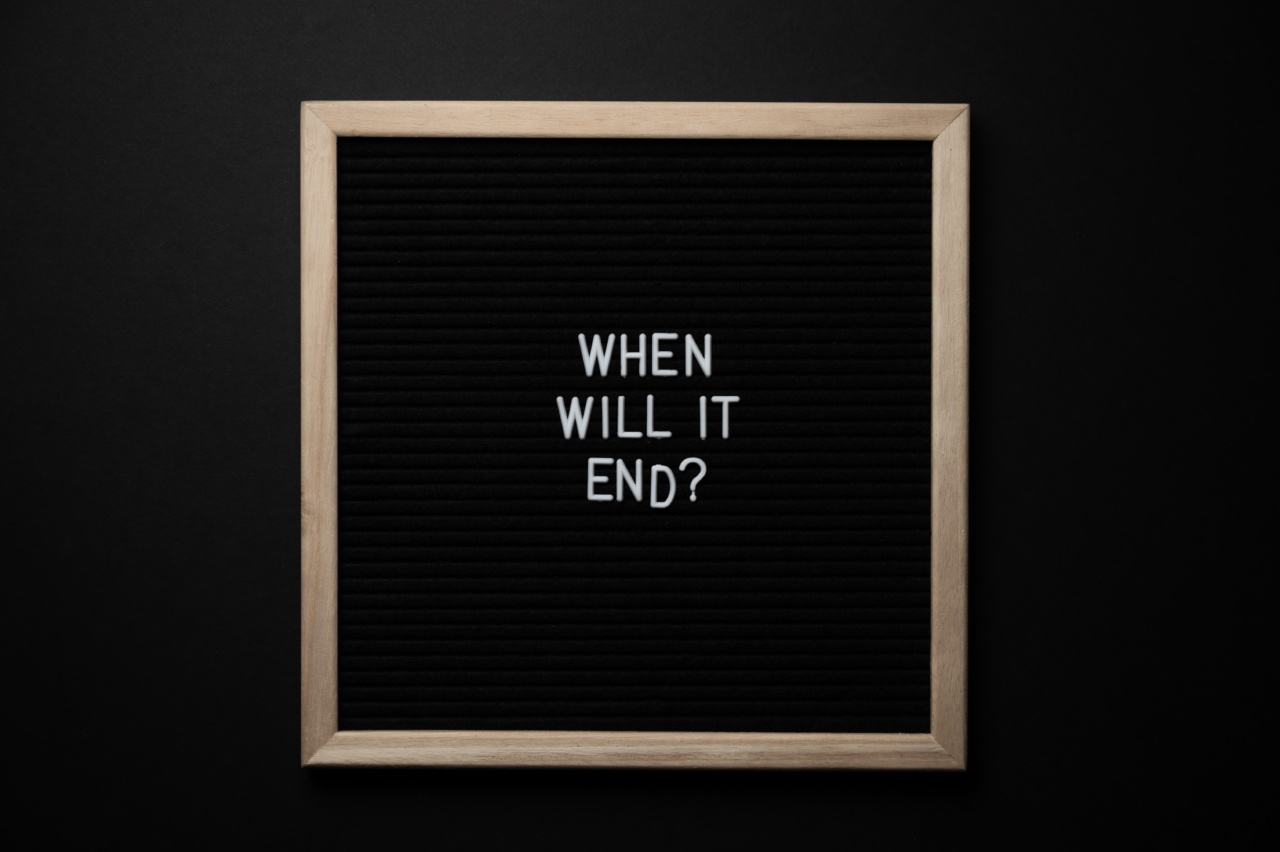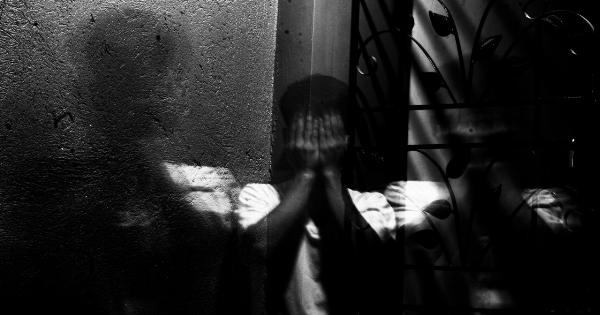Social media platforms have become an integral part of our lives, providing us with the opportunity to connect, share, and interact with others seamlessly.
While these platforms have proved to be a boon for society in many ways, they also come with their fair share of downsides. One of the biggest concerns that have emerged in recent years is the impact social media has on mental health, particularly depression.
The Rise of Social Media
Social media has seen an unprecedented boom in the past decade with platforms like Facebook, Instagram, Twitter, Snapchat, and TikTok gaining immense popularity among users of all ages.
The interconnectedness and ease of access to these platforms have redefined the way we communicate, consume information, and present ourselves to the world.
With the increasing number of users and the integration of these platforms into our daily lives, it is crucial to examine the potential consequences they may have on mental health – particularly depression – in the age of social media.
The Highlight Reel Effect
One of the primary reasons why depression is on the rise in the age of social media is the “highlight reel” effect.
Social media platforms are breeding grounds for carefully curated and filtered content, often presenting an idealized version of people’s lives. Users tend to showcase their best moments, achievements, and desirable experiences, leading to a skewed perception of reality.
Constantly being bombarded with such content can give rise to feelings of inadequacy, as individuals compare their own lives to the seemingly perfect lives of others.
This constant comparison coupled with the fear of missing out (FOMO) can significantly impact one’s self-esteem and overall mental well-being.
The Illusion of Connection
While social media allows us to connect with others on a global scale, it can also create a sense of isolation and loneliness.
It is no secret that excessive use of social media can lead to a decrease in real-life social interactions, as people spend more time behind screens than engaging in meaningful face-to-face interactions.
Virtual connections, though valuable in their own right, cannot replace the depth and quality of real-life connections.
This lack of genuine connection and meaningful relationships can contribute to feelings of loneliness and, in turn, exacerbate depressive symptoms.
Cyberbullying and Online Harassment
The anonymity and perceived distance that social media provides can embolden individuals to engage in cyberbullying and online harassment.
The incessant exposure to negative comments, trolling, and malicious behavior can have a detrimental effect on mental health.
Victims of cyberbullying often experience increased levels of stress, anxiety, and depression. The constant fear of being targeted or humiliated online can lead to a profound sense of insecurity and self-doubt.
The prevalence of cyberbullying on social media platforms is a significant contributing factor to the rising rates of depression.
Social Comparison and Self-Esteem
Social media platforms foster an environment where social comparison thrives. Users are constantly comparing their physical appearance, achievements, and lifestyle choices with others.
This relentless comparison can negatively impact self-esteem and self-worth.
When individuals perceive themselves as falling short compared to their peers, negative emotions such as jealousy, envy, and self-doubt creep in, leading to a decline in mental well-being.
The constant pressure to maintain appearances and seek validation through likes, comments, and followers can have severe consequences on one’s mental health.
Fear of Missing Out (FOMO)
The fear of missing out (FOMO) is not a new concept, but social media has amplified its effects by providing constant updates on others’ lives.
Seeing friends and acquaintances engaging in exciting activities or achieving significant milestones can trigger feelings of loneliness, inadequacy, and anxiety.
Scrolling through social media feeds inundated with happy, picturesque moments can give rise to a constant fear of missing out on experiences and opportunities.
This fear can intensify depressive symptoms and make individuals feel disconnected from the world around them.
Sleep Deprivation and Mental Health
The addictive nature of social media, coupled with its accessibility at all hours, often leads to sleep deprivation. Many individuals find themselves mindlessly scrolling through their feeds, even during late hours of the night.
Studies have consistently shown a strong correlation between sleep deprivation and mental health disorders such as depression.
The blue light emitted by screens disrupts our internal body clock and suppresses the production of melatonin, a hormone essential for regulating sleep cycles.
Individuals who face difficulties in managing their social media usage and succumb to late-night scrolling are more likely to experience depressive symptoms due to the lack of quality sleep.
The Perils of Online Validation
Social media has created a new form of validation, where individuals seek approval, acceptance, and recognition through likes, comments, and followers.
The constant need for validation can be psychologically taxing and contribute to feelings of anxiety and inadequacy.
When one’s self-worth becomes contingent on the number of likes or followers they have, it sets the stage for a vicious cycle of seeking external validation and experiencing disappointment when expectations are not met.
This dependence on online validation can take a toll on mental health and contribute to the increasing rates of depression.
Unrealistic Body Standards
Social media platforms have become a breeding ground for promoting unrealistic body standards. Influencers and celebrities often portray an idealized version of beauty, which is unattainable for the majority of people.
This constant exposure to edited and filtered images can have a detrimental effect on body image perception.
Studies have shown that individuals who consume a higher amount of social media content are more dissatisfied with their bodies and are at a higher risk of developing depression and eating disorders.
Privacy Concerns and Online Bullying
Privacy concerns on social media platforms have been a topic of discussion for quite some time. The sharing of personal information, the risk of identity theft, and the potential for online bullying are prevalent issues.
Being a victim of online bullying or having personal information excessively shared without consent can be deeply distressing and contribute to the onset or worsening of depressive symptoms.
The constant need to protect oneself and monitor online interactions can generate immense anxiety and stress.
Inadequate Regulation and the Spread of Harmful Content
Despite efforts to regulate content on social media platforms, harmful content such as self-harm, suicide, or pro-depressive ideologies can still slip through the cracks.
The exposure to such content can trigger vulnerable individuals and potentially push them further into the depths of depression.
While platforms have made efforts to flag and remove such content promptly, the sheer volume of shared content makes it challenging to catch everything.
Inadequate regulation and moderation of harmful content contribute to the rise in depressive symptoms among social media users.
The Way Forward: Nurturing a Healthy Relationship with Social Media
Recognizing the impact of social media on depression is the first step towards mitigating its adverse effects. It is essential to cultivate a healthy relationship with social media to protect our mental health in the digital age.
Setting boundaries, limiting screen time, diversifying online sources, and engaging in offline activities can help reduce the negative impact of excessive social media usage.
Prioritizing real-life connections, seeking support when needed, and promoting open conversations about mental health are also crucial in combating the rise of depression in the age of social media.
Conclusion
Social media has undoubtedly revolutionized the way we connect and interact with others. However, its pervasive nature and potential impact on mental health cannot be ignored.
Depression rates are on the rise in the age of social media, primarily due to the highlight reel effect, the illusion of connection, cyberbullying, social comparison, FOMO, sleep deprivation, online validation, unrealistic body standards, privacy concerns, the spread of harmful content, and inadequate regulation. Recognizing these factors and taking proactive measures can help individuals safeguard their mental well-being in the digital age.































